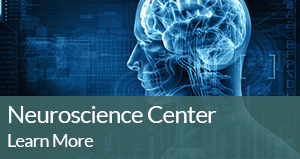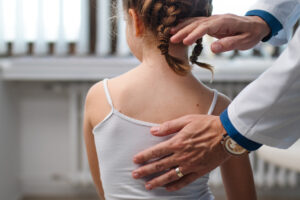As youth athletes start to gear up for fall sports, including football, soccer, cheerleading and wrestling, parents, and coaches and teachers should know how to recognize and properly respond to head injuries, particularly concussions. Studies have shown head injuries are more likely to occur in the spring and summer months and on weekends, when children are most active outdoors. They can just as easily occur when children are playing in the backyard or riding their bicycles as they do on the sports field.
But how do you know when to seek medical treatment for a head injury? As a neurosurgeon, this is a question I am often asked, but usually after the brain injury has already taken place. Keep in mind, “head injury” and “brain injury” are not necessarily the same thing ─ not every head injury will impact the brain.
General concussion symptoms
A concussion is an injury to the brain that changes how the brain normally works. It is usually caused by a significant, sudden blow or jolt to the head. Throughout life, most children bump or hit their heads more than once without causing damage to the brain. But for accidents or injuries that result in a significant impact to the head, adults should be ready to recognize the most common physical signs of a concussion. Also keep in mind that following a concussion, some children will continue to experience symptoms for weeks after, which often include:
- A brief period of confusion or memory loss following the injury
- Headache, vomiting, dizziness
- Acting dazed or losing consciousness for even a brief time
When to call 911
I recommend to patients that if a child has sustained a significant trauma to the head, bring them to your pediatrician immediately or go to your local hospital for evaluation and treatment by a medical doctor with expertise in head trauma. If the child is unconscious for more than a minute, is bleeding heavily, or experiences any mental confusion, do not move the child or sit him/her up. Call 911 for emergency medical care and transport to the nearest hospital.
New Jersey’s Youth Sports Concussion Safety Law went into effect December 2010 and contains a very specific concussion policy which includes recommendations that all student-athletes receive “academic accommodations” once they are medically cleared to return to the classroom. This provision lessens stress to the child while the brain continues the short-and long-term healing process. You can find out more information by visiting nj.gov/education.
Newer concussion studies improve rehabilitative patient outcomes
With our country’s expanded emphasis on the study and treatment of concussions, we now have vastly improved tools and understanding to help younger patients return to normal brain function even after the brain has been compromised. As neurosurgeons, our ultimate goal is to restore the child’s ability to pursue normal social, emotional and intellectual pursuits with renewed vigor and enjoyment.
 Dr. Nirav K. Shah is a board-certified neurosurgeon on staff at CentraState Medical Center. His areas of expertise include complex spinal surgery, intracranial tumor radiosurgery and concussion therapy. He can be reached at Princeton Brain and Spine Care by calling 732-333-8702.
Dr. Nirav K. Shah is a board-certified neurosurgeon on staff at CentraState Medical Center. His areas of expertise include complex spinal surgery, intracranial tumor radiosurgery and concussion therapy. He can be reached at Princeton Brain and Spine Care by calling 732-333-8702.







